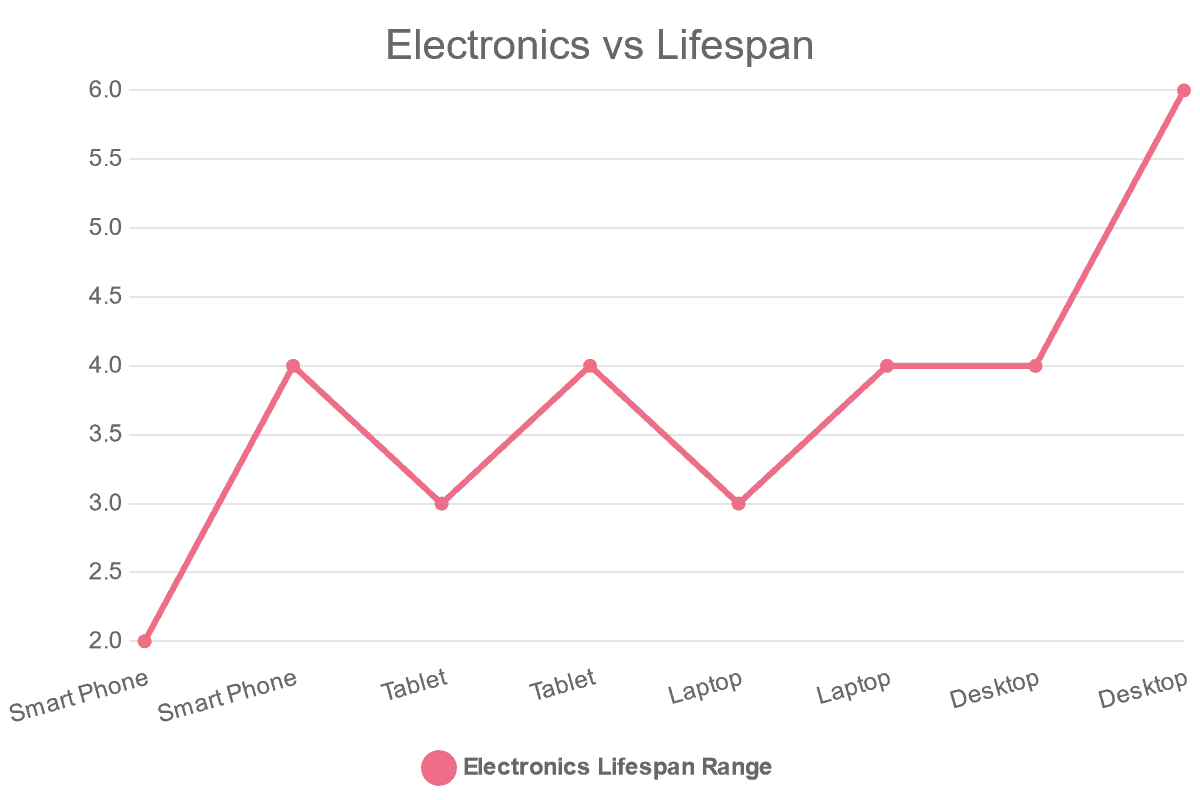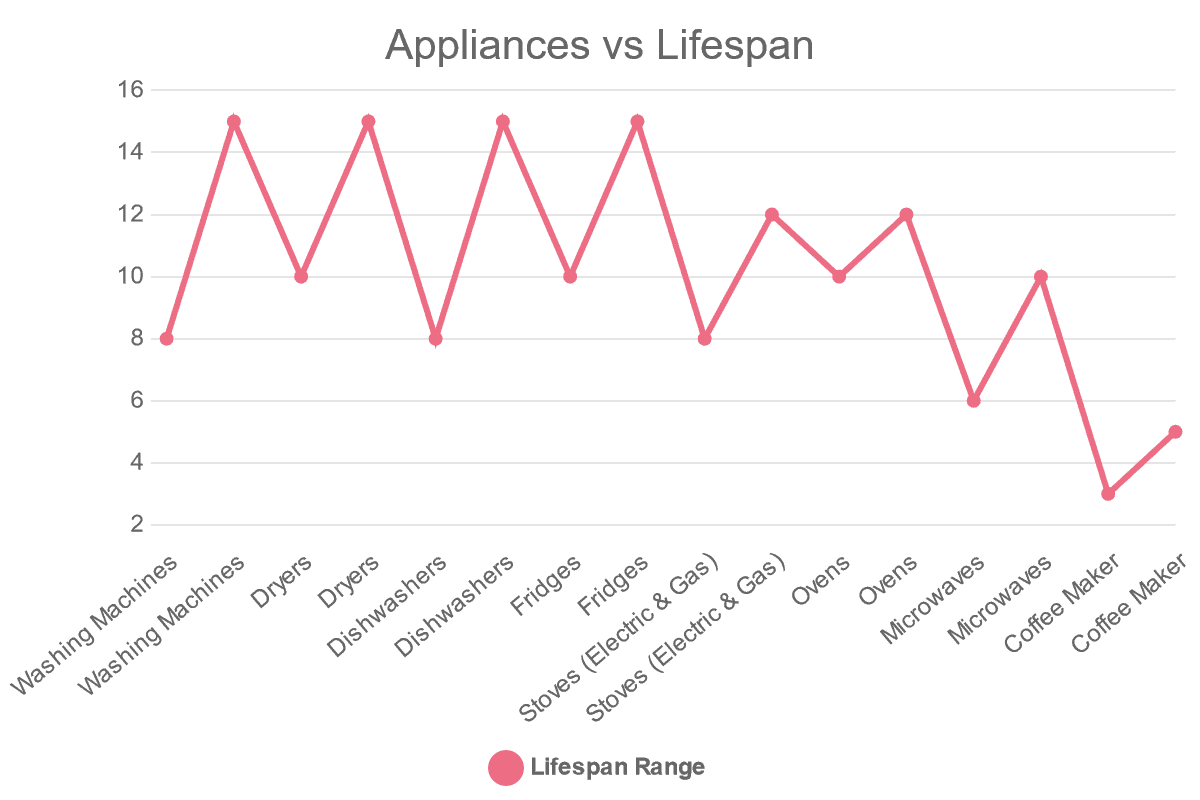Electronics and appliances are an essential part of our everyday life. For example, more than 31 million Canadians have a smartphone and that is just one device. Millions also use computers, laptops, tablets, dishwashers, coffee makers, and fridges every single day.
In fact, without a lot of these things, we would struggle to perform a lot of basic tasks at home and at work. So it's hardly surprising that the electronics and appliances market in Canada is worth an estimated $10.4 billion.
However, no electronic device or appliance will last a lifetime. If yours are going to deliver, you will need to replace electronics and home appliances fairly regularly.
So why is this important and when should you replace your electronics and home appliances? Read on to find out more!
Why is it Important to Replace Electronics and Home Appliances?
Replacing your electronics and appliances is a job that people often put off. After all, if it ain't broke, don't fix it, right? However, keeping an eye on your appliances and their shelf life is important for a number of reasons.
To start with, all of these devices use electrical energy in your home. As they get older they may start to work less efficiently and this could mean you spend a lot more on your bills every month.
On top of this, all appliances and electronics have a shelf-life. This means that, without repair or maintenance, they will eventually stop working completely.
The last thing you want is for an appliance to stop working unexpectedly, leaving you without the use of it. Keeping an eye on your appliance and electronics needs will ensure that nothing packs up on you without warning.
However, this isn't just a financial issue. Every year in Canada, 13% of fires in homes occur as a result of an electrical appliance malfunction. This can happen if an older device's safety mechanisms no longer work properly.
After a fire, your home insurance company will carry out a full investigation into the cause of the fire. The last thing you want is to lose your home insurance coverage because the fire resulted from poor appliance maintenance.
With that in mind, let's take a closer look at how long different electronics and appliances last and what you should do when they stop working.
How Long Do Electronics Last?
Electronics include devices like smartphones, laptops, and tablets, which play a vital role at home and at work. Each device has a different shelf life.
There are plenty of things you can do to get as much use out of your electronics as possible. Let's take a closer look at each of these.
Smartphones, 2 - 4 years
Smartphones should last at least two years provided they don't suffer any major damage. In fact, most will last for four years or more if you look after them properly. To help with this, keep these tips in mind:
- Always use a case for your smartphone
- Close any apps that you aren't using to save the processor's power
- Only upload a new OS to an old phone after you've been using it for a month
Tablets, 3 - 4 years
Most tablets should last around four years. You can, of course, keep yours for longer than four years but it might not work as efficiently or be up-to-date. You should also:
- Avoid storing your tablet in the sun
- Use a hard case to prevent it from bending or breaking
Our tips for looking after smartphones also all apply to tablets.
Laptops, 3 - 5 years
Business laptops will last around three years with heavy use, while consumer laptops generally last longer. These should last four years but a quality laptop can last for five or more years. To find a laptop that will last you should:
- Choose one that is built for your needs (for example a professional or business laptop)
- Avoid laptops with a lot of gimmicks or moving parts
- Look for a laptop with plenty of storage and memory
Desktops, 4 - 6 years
Desktops tend to last a little longer than laptops — so yours should last for about five years. However, they can last even longer if you use a laptop as well. This is because they will get less use so wear out more slowly.
How Long Do Appliances Last?
Most homes are fitted with a variety of appliances that make our daily life a lot easier. These tend to have a much longer shelf-life than electrical devices and their price tag often reflects this.
Washing Machines, 8 - 15 years
Your washing machine should last for up to 10 years, however, this may be shorter if you use yours a lot. To get the most out of your washing machine, you should:
- Always balance your clothing in the drum
- Ensure that the drainage line is clear and clean
- Wash the washing machine drum regularly
Dryers, 10 - 15 years
Most dryers will last for 13 years, so a little longer than washing machines. To maintain your dryer, you should regularly:
- Get rid of any debris on the screen or in the air vent
- Never put soiled clothes directly into the dryer
- Clean the inside of the drum
- Clean the outside of the dryer using a sponge and warm water
Dishwashers, 8 - 15 years
So how long do dishwashers last? With proper cleaning and maintenance, they should work without issues for around 10 years. To help this you should make sure you:
- Stack your dishwasher properly
- Keep your dishwasher's drain clear and clean
- Keep your dishwasher's air vent clear
Fridges, 10 - 15 years
Even though fridges are in constant use they still have a good lifespan of 13 years. Your fridge maintenance should include:
- Vacuuming the air intake to get rid of any dust or debris
- Wipe down the rubber door gaskets regularly
- Check the drain pan at the bottom of your fridge isn't overflowing
Stoves and Ovens, 8 - 12 years
With regular, thorough cleaning your stoves and ovens should have a decent shelf-life whether you use gas or electricity. However, gas ranges do have a slightly longer shelf-life of 15 years. In comparison, most electric ranges will last for up to 13 years.
How Old is My Appliance?
Most appliance instruction manuals will come with a date of manufacture. So if you hold onto these you will be able to find out everything you need to know.
However, if you have lost your instruction manual, you can still find out the age of your appliance easily. All you need to do is look for the nameplate of an appliance. This is usually on the bottom of a unit or inside the door of larger appliances.
The first number on a nameplate indicates the year it was made, while the second and third numbers tell you the production week. Every nameplate should have a serial number on it.
You can also Google this number along with the manufacturer's name to find out more about an appliance.
Repair or Replacement: Which Option is Best?
When an appliance or device stops working this is usually because a single component in it has stopped working properly. When this happens you need to decide whether to fix appliances or replace them entirely.
In order to do this, you really need to weigh up the cost of repairs versus replacement. Always consider the 50/50 rule before deciding. If the appliance is halfway through its lifespan and if the cost of a repair is more than 50 percent of the cost for a new appliance, consider replacing it instead of repairing it.
Often repairs will be cheaper. However, they may not last long as a replacement would. If you end up having to get more repairs or another replacement this could cost you more in the long run.
Some repairs will be more cost-effective than others. For example, you'll save a lot more money getting your fridge repaired than you would getting your phone fixed.
It's also worth thinking about how much longer your device or appliance is due to last. If it is nearing the end of its expected lifespan then it might be worth taking the hit and replacing it early.
If you have recently bought a device or appliance that stops working then it's worth checking to see if it comes with a guarantee. Most appliances will come with a guarantee for free repair or replacement that reflects their expected lifespan. For example, a dishwasher might come with a 5-year guarantee because it should last much longer.
Start Keeping Track Your Appliances Today
As you can see, a lot of the appliances and electronics in your home have different shelf lives. Staying on top of these will ensure that you have plenty of time to replace electronics and home appliances before they stop working completely.
This can help you to avoid serious health and safety issues in your home as well as making day-to-day life easier. So what are you waiting for?
For more great tips, advice, and life hacks for Canadian homeowners, check out the rest of our blog now!


